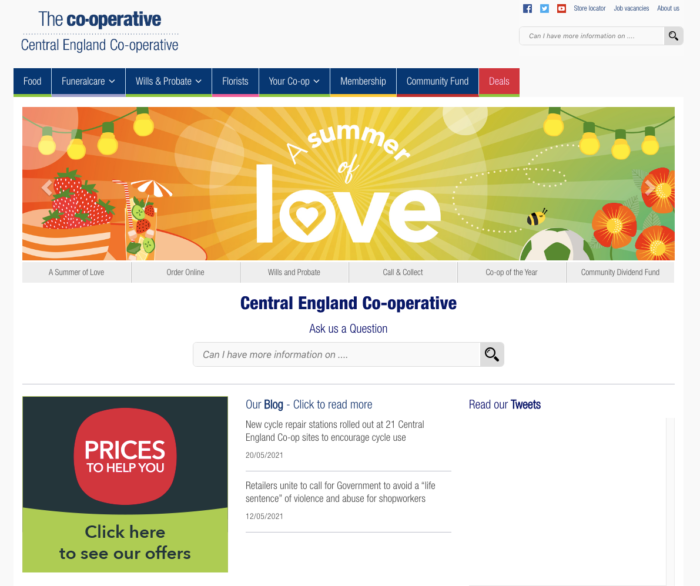Consumers are asking more questions online than ever before. But how do you provide the right answers? Jon Buss, Managing Director at Yext, explores the world of natural language processing and how it can be used to attract visitors to your website - and keep them there.
Since the start of the pandemic, the UK has seen an incredible spike in online searches – a trend no doubt repeated around the globe. Customers are increasingly looking for answers, and as the main interactions between brands and customers become ever more digital, companies have had to adapt their communication strategies.
Yet despite this surge in digital activity, many brands still have a fundamental problem when it comes to providing consumers with what they need when searching online – accurate and relevant information.
People are no longer typing in disparate keywords like they might have done 20 years ago. Instead, they are typing complex questions into a search box or verbally addressing a voice assistant – and they want answers.
The rise of NLP provides an opportunity and challenge
 For the brands who are looking to improve customer experience for their users, search technology has become a key element in plugging this gap.
For the brands who are looking to improve customer experience for their users, search technology has become a key element in plugging this gap.
With the rise of natural language processing (NLP) online, consumers are now able to ask questions as if they were talking face-to-face with an actual person. This means that search engines like Google and Bing are able to understand queries in exactly the same way as they would verbally, and as a result, can answer questions quicker and more accurately than ever before.
It makes a huge impact on the overall customer experience when they’re able to ask a question in a variety of ways using natural language. The ability to ask Siri or Alexa a question verbatim as they would if they were speaking to someone is what elevates this technology from an automated phone menu for instance, which only performs when you are able to use previously programmed, non-negotiable words.
NLP combines AI and linguistics that enables computer programmes to both understand and derive meaning from language. This has been studied for over 50 years, but it is modern advances that have allowed search engines to become smarter over time.
This shift towards NLP in answering questions online has completely revolutionised what we come to expect when searching digitally. So, when customers use the search bar on a brand’s website, they understandably expect quick, accurate answers. If not, they are likely to return back to Google and get their answer from somewhere else.
This issue has been supercharged over the course of the pandemic, with people asking more questions online than they ever have before. This is a sign that brands aren’t delivering. However, this shift is good news for the consumer and brand relationship. If your business shows a readiness to engage with a sophisticated degree of human responsiveness, your site will reap the benefits of an amazing customer experience.
In a world where you can simply ask for what you want, it is key that brands keep their sites optimised to understand our language as it is. For any brand looking to prioritise their digital strategy, NLP-powered site search will be a key first step to accurately answering customer questions and delivering on their expectations.
But it’s not just about recognising language as it is. To really understand the complex questions that are being asked time and time again, brands don’t just need NLP, but also a semantic computing model that understands humans at the centre of their marketing stack. This is why businesses can, and should, invest in a knowledge graph.
A knowledge graph is a brain-like database which serves as the single source of truth online, and holds all the public information about the brand that consumers need. This could include information about new products, store locations, opening hours, or professional credentials. For success in search, companies can employ the use of NLP and knowledge graphs to answer all the questions anyone could ask them.
Providing Co-op customers with an enlightened digital experience
 One prime example of a brand getting this right is Central England Co-operative, who have been working with Yext to provide official answers to thousands of digital questions. By structuring its information in a knowledge graph, the Central England Co-operative are now able to answer complex questions on its website, providing the direct answers people are looking for.
One prime example of a brand getting this right is Central England Co-operative, who have been working with Yext to provide official answers to thousands of digital questions. By structuring its information in a knowledge graph, the Central England Co-operative are now able to answer complex questions on its website, providing the direct answers people are looking for.
By also using Yext’s ‘AI Search’, Central England Co-operative was able to get a previously unknown perspective of what their customers were searching for the most, revealing that almost 75% of all queries through the search bar were product questions. The team were able to use this data to inform content creation and product features to drive conversions.
As the brand looks to the future, it plans to expand its online offering…
Utilising a knowledge graph and NLP will continue to provide key insights on its changing customer preferences and demands. With plans to provide regional trials for online transactions, being able to tailor its different web pages has enabled the brand to see the exact traffic they’re getting to each page and what differences maintain retention. This kind of insight will inform the future of the trial, and make NLP and knowledge graphs a pivotal element of its digital strategy moving forward.
Consumers expect better answers. Are you delivering?
Ultimately, leveraging tech innovations like NLP and knowledge graphs are crucial to keeping up with the latest trends and customer expectations in online search. The bar has risen, and consumers have a new standard for how well their queries are understood.
We know that one wrong answer can come with a huge cost, either in the form of lost business or a pricey call to customer service. By better pinpointing the customer’s intent, businesses can reduce this threat and ensure an outstanding customer experience on their own sites.
Enabling consumers to ask questions in a natural way, and being able to understand and provide accurate answers through AI search, will allow brands to deliver the information customers need, and provide a seamless experience that keeps customers coming back for more.
Title image by Please Don’t sell My Artwork AS IS from Pixabay.







Leave your thoughts